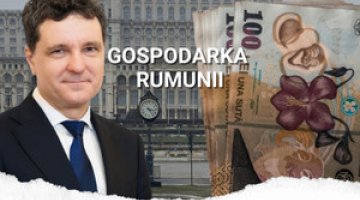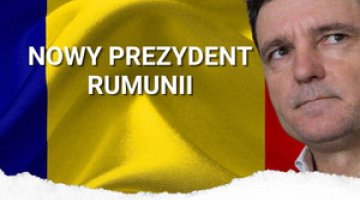Romania’s Anticorruption DNA
On 17th September Romania’s Prime Minister Victor Ponta was officially charged with financial offences. The charges were put together by the National Anticorruption Directorate (DNA) which in recent years has succeeded in holding hundreds of administration officials and tens of front-page politicians accountable for their crimes. The beginning of the trial of a serving prime minister has not triggered a political crisis. The coalition of the Social Democrats and two small political parties, fearing the loss of power, has pledged decisive support to Ponta. On 29th September the opposition’s vote of no confidence failed to pass in parliament and the Ponta government may survive until the parliamentary election which is due next year.
Although the criminal trial of the serving prime minister is affecting the Romanian government’s reputation, Romania is being ever more often put forward by the European Commission and the other observers as an example of a country fighting corruption in an uncompromising and consistent manner. Anticorruption measures, which are supported by the European Commission and the US, are gradually changing Romania’s politics. They are leading to reshuffles in the ruling elite and are establishing new political divides. It remains an open question as to whether these measures will permanently weaken trends in Romanian politics linked to clientelism and corruption.
The case of Prime Minister Ponta – another development in the anticorruption campaign
The head of the government was presented with the charges linked with falsifying documents, complicity in money laundering and tax evasion. The charges apply to the years 2007 and 2008 when Ponta ran a private law firm and did not hold a seat in the Romanian parliament. He allegedly received nearly 40,000 euros for fictitious services provided to a law firm owned by Dan Sova, who is currently a senator and a long-standing aide of Ponta. Sova was accused of embezzling public funds from two state-owned energy companies, Rovinari and Turceni, and his co-operation with Ponta was meant to cover up part of this criminal practice. DNA also charged Ponta with a conflict of interests due to him appointing Sova to important ministerial positions three times while in office. This question is, however, not a subject of the legal proceedings since in June the Romanian parliament did not agree to lift Ponta’s immunity.
The putting of Prime Minister Ponta on trial is the most publicised accent in the anticorruption campaign which is gathering momentum. The trial is being conducted by the National Anticorruption Directorate (DNA) which was established when Romania was preparing for EU membership. DNA has prosecution and investigation competences and specialises in combating corruption, in particular at the highest levels of power. For years DNA has been highly effective – over 90% of the trials it has conducted end in sentences. In 2014, following charges formulated by DNA, Romania’s former prime minister Adrian Nastase was handed a legally binding sentence (he was released from the correctional facility after serving seven months of the four-year custodial sentence), as were two ministers and five members of parliament. Investigations involving dozens of other well-known politicians are currently underway. Social Democratic politicians are dominant among those who are accused; there are, however, also politicians from other political groupings, including President Klaus Iohannis’s former national security aide and a former regional development minister who was Traian Basescu’s close associate. DNA is also involved in a series of investigations into local governments. In this area its most spectacular action has been the arrest of the mayor of Bucharest.
The activity of DNA is the subject of fierce disputes on the Romanian political scene. Social Democratic politicians have suggested many times that the ongoing investigations are politically motivated and they have made attempts, often with the tacit support of a section of opposition politicians, to curb DNA’s competences. However, these actions have proved ineffective – President Basescu, the media and non-governmental organisations have defended its independence. The European Commission and the US have also played an important role in maintaining its independence. To this end the EC has used a mechanism of monitoring progress in fighting corruption and reforms of the legal system, whereas the US has promptly reacted to all attempts to hamper the fight against corruption.DNA has gained large popularity in Romanian society. In opinion polls it ranks fourth with regard to social confidence, following the Orthodox Church, the army and the special services.
A stalemate on the Romanian political scene
Prime Minister Ponta has categorically rejected the charges and is presenting himself as an innocent victim of the ‘obsession of an unprofessional prosecutor’. The ruling coalition has backed him and on 29th September rejected a vote of no confidence put forward by the opposition national liberals (PNL). The prime minister’s firm defence stems from coalition’s fear of losing power since under the Romanian constitution the head of state presents the candidate for prime minister to parliament. President Klaus Iohannis already after the beginning of DNA’s trial of Prime Minister Ponta (in June this year) indicated that he would rather see a representative of the opposition in his position. Moreover, there is no leader among Social Democratic (PSD) politicians who would provide a reliable alternative to Ponta. Liviu Dragnea, who is a favourite in the October election for the new PSD leader, has been sentenced himself, following a non-legally-binding verdict, due to irregularities in the organisation of the referendum on the president’s impeachment in 2012. Despite Ponta’s problems, the Social Democratic party maintains quite large social support. According to an opinion poll conducted in September by Inscop Research, support for PSD stands at approximately 35%, whereas it is 42% for PNL.
A change of heart of two rather small parties which support the Social Democratic government might contribute to the collapse of the Ponta government – the National Union for the Progress of Romania (UNPR) led by the present deputy prime minister and minister of internal affairs Gabriel Oprea, and the Alliance of Liberals and Democrats (ALDE) led by the president of the Senate Calin Popescu Tariceanu. However, in practice the two parties prefer to back Ponta. The ruling coalition has chosen a ‘strategy of biding its time’ – it is playing down the charges against the prime minister and is hoping that it will capitalise on the good economic situation, the reduction in taxes at the beginning of 2016 (VAT will fall from 24% to 20%) and the promise to raise salaries in the public sector already before the election at the end of 2016. President Iohannis and the opposition liberals have called for Ponta’s resignation and anticorruption slogans have become the main point in their political manifesto. PNL, however, has problems with presenting a coherent, alternative vision of its rule and lacks a strong leadership. President Iohannis, who comes from this party, has the highest approval ratings (58%) but tends to avoid direct involvement in disputes between parties.
Long-term implications of the anticorruption campaign
Even though the trial of Prime Minister Ponta has not turned into a political crisis, it is part of a wider process of the reconstruction of the Romanian political scene. The publicity around subsequent corruption scandals goes hand in hand with the growing popularity of slogans in society which call for state reform and the cleansing of the political elite. This was manifested by the victory of Klaus Iohannis in the presidential election in November 2014 – a politician from outside the political mainstream whose key manifesto promise was to continue the fight against corruption and to protect the independence of the legal system. Simultaneously, the Romanian political scene is consolidating around two main camps: the ruling Social Democrats and the national liberals who are in the opposition. The political parties representing the Hungarian minority, ALDE and UNPR, may have problems passing the 5% electoral threshold. The political dividing lines are also shifting – issues of communist connections and the approach to the former president Traian Basescu (which has for years divided Romanian politics) are receding. On the other hand, the question of reliability in combating corruption (the main slogan of the national liberals) and promises of translating economic growth into better living standards are playing a larger role.
The spectacular successes in fighting corruption have been contributing to improving Romania’s reputation on the international arena. The effectiveness of DNA has been appreciated by the European Commission which puts this institution forward as an example for other EU states to follow. Romania has even become a role model for the conducting of an effective anticorruption campaign and the country is offering its expertise in this area to, for example, neighboring Moldova and Ukraine. Romania is also more and more often being presented as a positive example for Bulgaria.





